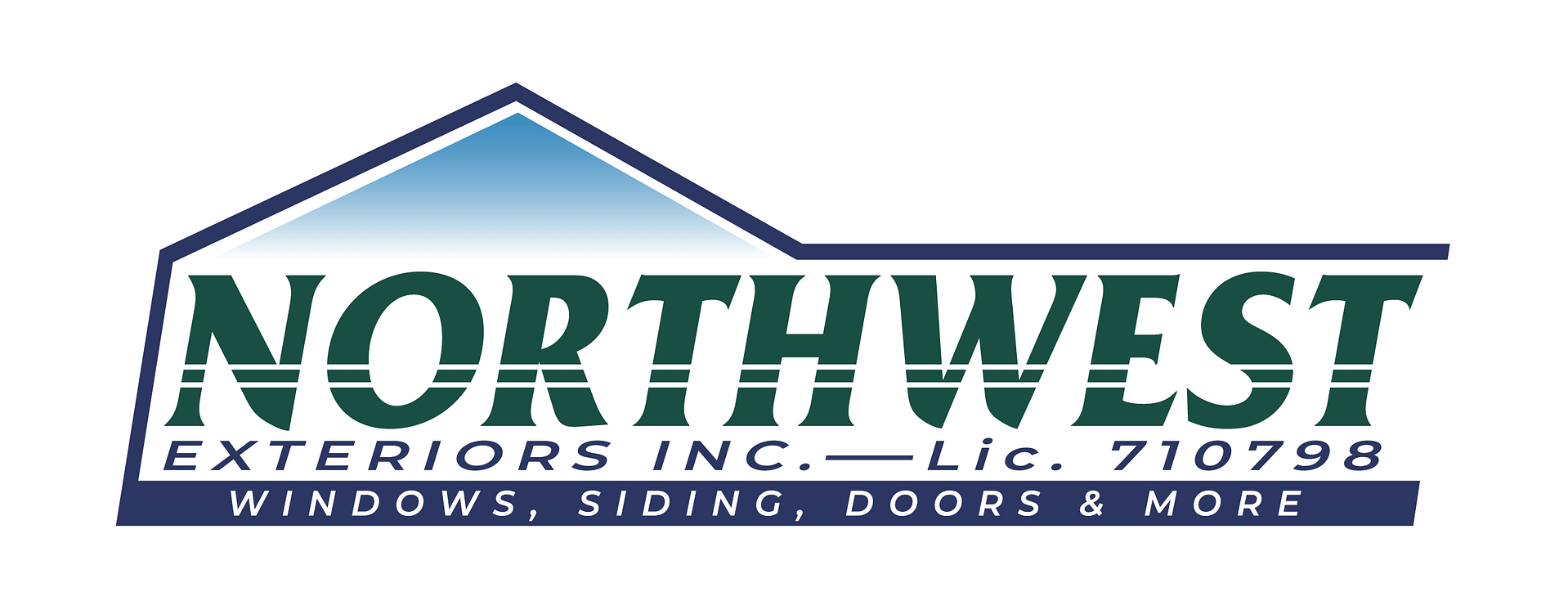
Old, drafty windows are draining your wallet. It’s true. The older and more inefficient your windows are, the more they cost you every month. If you’ve noticed higher energy costs, leaky windows, and drafty rooms, it might be time to install modern windows specifically designed to keep your wallet fat. Investing in energy-efficient, planet-friendly windows will also improve the value of your home as well as its curb appeal.
Are rising energy bills a concern for homeowners in the Greater Sacramento area? Energy-efficient windows can offer a solution. This article will explore the key advantages, including potential savings and additional benefits, alongside evaluating the return on investment. Homeowners will discover how choosing Sacramento replacement windows can enhance their comfort while lowering energy costs. By understanding the role of glazing and low emission glass windows, readers can make informed decisions that align with their financial goals, ultimately addressing their pain points regarding home energy efficiency.
Understanding Energy-Efficient Windows and Their Advantages
Energy-efficient windows play a significant role in home improvement by enhancing ventilation and reducing moisture. These windows are designed to minimize energy loss, thereby lowering greenhouse gas emissions and improving home comfort. Key features include double or triple glazing and low-emissivity coatings, as highlighted in Sacramento replacement windows, which will be explored in detail in the following sections.
Defining Energy-Efficient Windows
Energy-efficient windows are designed to provide better thermal insulation and minimize energy loss in homes. By incorporating features such as double or triple glazing and low-emissivity coatings, these windows significantly contribute to environmental protection and sustainability, making them a smart choice for homeowners considering sacramento replacement windows during renovation projects. Ultimately, energy-efficient windows can lead to substantial savings on utility bills, enhancing both comfort and financial well-being.
Key Features of Energy-Efficient Windows
Key features of energy-efficient windows include advanced materials and designs that help combat issues like mildew and mold, both of which can thrive in poorly insulated environments. For instance, aluminum frames combined with double or triple glazing offer durability while preventing heat loss, which ultimately leads to a more comfortable home. Homeowners can experience the benefits of energy-efficient windows, such as reduced utility costs and a smaller carbon footprint, while contributing to recycling initiatives through energy-saving practices.
The Savings Offered by Energy-Efficient Windows
Energy-efficient windows offer substantial savings through reduced heating and cooling costs, enabling homeowners to optimize solar gain while minimizing carbon dioxide emissions. The long-term financial benefits extend beyond immediate utility bill reductions, playing a crucial role in decreasing greenhouse gas emissions. This section will discuss how window installation can lead to meaningful energy savings and sustainability for the environment.
Achieving Significant Energy Savings
Investing in energy-efficient windows can lead to remarkable energy savings over time. Windows filled with argon gas and made from durable fiberglass frames enhance insulation and reduce energy loss, resulting in lower heating and cooling costs. These improvements not only bolster energy conservation efforts but also contribute to a reduced carbon footprint, making homes more environmentally friendly:
Reducing Heating and Cooling Costs
Energy-efficient windows significantly contribute to reducing heating and cooling costs for homeowners. These windows, which often meet Energy Star standards, effectively limit condensation and improve indoor air quality by preventing moisture buildup. Furthermore, using materials like polyvinyl chloride for window frames enhances durability and insulation, providing a strong return on investment as energy bills decrease over time.
Long-Term Financial Benefits
The long-term financial benefits of energy-efficient windows are noteworthy, especially as homeowners look to combat climate change and promote sustainable development. These windows minimize humidity and prevent moisture buildup, which not only contributes to lower energy costs but also reduces maintenance expenses associated with mold and mildew. Furthermore, investing in soundproofing features enhances the overall home environment while providing added value; homeowners can even request a free quote to explore the options available for their specific needs.
Additional Benefits of Energy-Efficient Windows
Energy-efficient windows offer numerous additional benefits that extend beyond savings. They enhance indoor comfort by maintaining consistent temperatures, lower environmental impact through reduced energy consumption, and minimize noise pollution for a quieter home. Furthermore, these windows protect interiors from UV damage, preserving furnishing quality while potentially increasing home resale value. Each of these advantages further highlights the efficiency and incentives for homeowners aiming to decrease their carbon footprint and improve overall construction quality.
Enhancing Indoor Comfort
Energy-efficient replacement windows significantly enhance indoor comfort by minimizing infiltration, which can lead to drafts and temperature fluctuations. This results in a consistent indoor environment, ultimately improving the overall quality of life for homeowners. Moreover, these windows are designed to block harmful ultraviolet rays while reducing exterior noise, creating a serene living space that protects both furnishings and well-being.
Lowering Environmental Impact
Energy-efficient windows play a pivotal role in lowering a home’s environmental impact by reducing reliance on air conditioning and optimizing the use of solar energy. By selecting materials such as wood or metal, homeowners can enhance the durability of their windows while contributing to renewable energy initiatives. These windows not only decrease energy consumption but also support a sustainable lifestyle, enabling families to enjoy a comfortable living space with minimal ecological footprint.
Minimizing Noise Pollution
Energy-efficient windows effectively minimize noise pollution, creating a quieter indoor environment that enhances comfort. These windows utilize advanced materials, such as fiber and insulated glazing, to reduce sound transmission from external sources, including wind and traffic. By maintaining room temperature and suppressing intrusive sounds, homeowners can enjoy a more peaceful living space, contributing to the broader principles of green building and sustainable design.
Protecting Interiors From UV Damage
Energy-efficient windows equipped with low-emissivity coatings play a crucial role in protecting interiors from harmful UV damage. By minimizing heat transfer and blocking a significant portion of ultraviolet rays, these windows help preserve the quality of furnishings and flooring, which often succumb to fading and deterioration when exposed to direct sunlight. Homeowners can see long-term savings on replacement costs for damaged materials, making energy-efficient window installation a wise investment for both comfort and longevity.
Increasing Home Resale Value
Investing in energy-efficient windows can significantly increase a home’s resale value. These windows help lower energy consumption by optimizing natural sunlight and harnessing solar power effectively, which is attractive to potential buyers looking for energy-saving features. When homeowners upgrade to energy-efficient windows, not only do they improve their living space’s comfort, but they also enhance the overall price of their property, making it a smart investment that pays off during resale.
Evaluating the Return on Investment
Evaluating the return on investment for energy-efficient windows encompasses a thorough analysis of long-term savings, potential incentives, and rebates available. Homeowners can benefit from the national fenestration rating council’s guidelines, which assist in selecting windows that optimize savings. Tax credits can further enhance value, especially for windows utilizing advanced materials like plastic or krypton for insulation. This section will detail these aspects to illustrate practical financial benefits.
Long-Term Savings Analysis
The long-term savings analysis of energy-efficient windows reveals their potential for significant financial benefits over time. Homeowners can expect lower heating and cooling costs, leading to a faster return on investment through reduced utility bills. For instance, those who replace standard windows with high-performance energy-efficient options may achieve savings that pay for the initial installation within several years:
Incentives and Rebates for Energy-Efficient Windows
Homeowners can take advantage of various incentives and rebates for energy-efficient windows, enhancing their financial return on investment. Many local and federal programs offer substantial tax credits for window upgrades, effectively offsetting installation costs. These financial incentives allow homeowners to make eco-friendly choices while improving their property’s energy efficiency, leading to both immediate and long-term savings.
Choosing the Right Energy Efficient Windows
Selecting the optimal energy-efficient windows involves understanding various factors that influence performance and efficiency. Homeowners should consider window materials, styles, and technologies to enjoy considerable benefits like improved insulation and reduced energy costs. Popular technologies, such as low-emissivity coatings and argon gas filling, will be explored to highlight their specific advantages.
Factors to Consider When Selecting Windows
When selecting energy-efficient windows, homeowners should consider several critical factors that impact performance and efficiency. These include the materials used for the window frames, such as vinyl, wood, or fiberglass, each offering distinct benefits in terms of durability and insulation. Additionally, evaluating the type of glazing—like double or triple glazing—and low-emissivity coatings is essential, as these features significantly enhance energy conservation and indoor comfort.
Popular Window Technologies and Their Benefits
Homeowners seeking to maximize energy efficiency should consider popular window technologies that offer substantial benefits. Low-emissivity (Low-E) coatings reflect infrared light while allowing natural light to enter, effectively reducing heat transfer and maintaining consistent indoor temperatures. Another notable option is argon gas insulation, which fills the space between double or triple-glazed panes to significantly enhance thermal performance, ultimately lowering heating and cooling expenses.
How to Maximize the Benefits of Energy-Efficient Windows
To maximize the benefits of energy-efficient windows, homeowners should focus on two key areas: proper installation and ongoing maintenance. Following best practices during installation can enhance performance, while conducting a home energy audit helps identify areas for improvement. These strategies provide optimal energy savings and increased comfort, making window efficiency a valuable investment.
Tips for Installation and Maintenance
Proper installation is crucial for maximizing the benefits of energy-efficient windows. Homeowners should hire experienced professionals who understand the specific requirements for insulation and sealing, as improper installation can lead to drafts and energy loss. Regular maintenance, such as inspecting seals and cleaning the frames, helps windows continue to perform efficiently over time, ultimately enhancing both comfort and energy savings in the home.
Conducting a Home Energy Audit for Optimal Results
Conducting a home energy audit is a vital step for homeowners aiming to maximize the benefits of energy-efficient windows. This assessment identifies areas where energy loss occurs, allowing homeowners to focus their improvements effectively. By pinpointing inefficiencies, such as inadequate insulation or drafty areas, a comprehensive audit empowers homeowners to enhance overall energy savings and comfort, ultimately leading to lower utility bills and increased home value.





